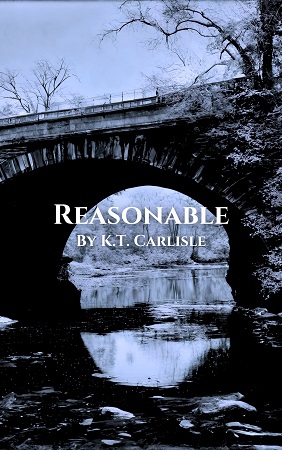One of the interesting and fun things about friends writing books is that they take you in all sorts of places you wouldn’t necessarily expect. Would I have picked up a novel described as folk horror if my friend...

One of the interesting and fun things about friends writing books is that they take you in all sorts of places you wouldn’t necessarily expect. Would I have picked up a novel described as folk horror if my friend Tom hadn’t written it? Probably not – but I thoroughly enjoyed Blight (2023) and was relieved that it lent more into gothic than horror. My tolerance for horror is very low and I wasn’t traumatised, so hurrah!
Set in 1883, James Harringley has been summoned back to the Yorkshire mansion he grew up in by his brother, Edward. They parted on bad terms and do not feel very brotherly to each other – but James is persuaded to return because of two things. One is his ailing father – the other, more importantly, is the groundkeeper’s missing baby. The family, and the village, are sure it’s connected to the horrifying tale of the Tall Man – a being that possesses a great void beneath the house, and demands human sacrifices.
You can imagine that I was a bit of a fish out of water with that premise, but what I liked most about the novel was the insight into family. The dynamic between the brothers is particularly well-observed, and work independently of the supernatural element. While they may talk about extraordinary things, there are the ordinary resentments of two brothers who no longer share a common belief system or set of priorities, and both feel judged by the other. (Interestingly, James has his own unconventional relationship back home – I would have liked more attention paid to that, to learn more about its progression and what day-to-day life was like.)
Edward spoke more quietly now, but his lip still twitched, as though at any second it might twist into a sneer. “That’s always been your problem,” he said bitterly. “You want to throw away our history. Everything that made this family who we are today.”
“Not throw it away. Just – examine it. Update our traditions, if need be.”
“Those aren’t the words of a man who believes in this family.”
“My God,” said James, unable to hide his exasperation, “would you listen to yourself? A family’s not a matter of faith – it’s here, no matter whether we believe in it.”
But of course the supernatural is there. We get hints very early, and I think the reader is asked to fairly quickly suspend any disbelief. This isn’t really a novel about trying to work out whether there are natural or fantastic explanations – rather, we are given the apparatus of the genre and left to get on with it from there. Since Tom Carlisle’s home-from-home is literary writing rather than the more schlocky edges of genre-writing, it is given with neat and precise turns of phrase. The writing isn’t trying to be opaque, but there were lovely little spins on sentences and dialogue – like the end of this section:
“You said they went away,” James said. “Went away where?”
“He took them to the pit,” said the man, swallowing hard. “Gave them to the void.”
“Who?” said James desperately, his curiosity a knot in his guts.
The man sucked on his teeth, thought for a moment. “He doesn’t have a name,” he said eventually. “Or else he has too many.”
I tend to be very scared by novels I think contain feasible threat. I won’t read about serial killers or home invasion or anything like that – but I naturally don’t believe any of the Thin Man mythology, and so was able to read the progressing horror without feeling too uneasy. A few paragraphs were a bit gory for my squeamishness, but I managed to skim through them.
The tension builds, and there are a series of climaxes that are paced very well – I don’t think I’ve a convert to the genre, necessarily, but I certainly enjoyed reading Blight. Anything with a strong investigation of family dynamics is likely to win me over, in whatever form it’s presented.












